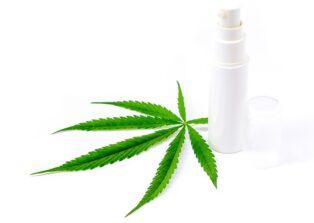A sublingual spray that contains both CBD and THC “could be a new therapeutic agent for lipid and glycemic control in diabetic patients”, according to a double-blind, placebo-controlled clinical trial published by the Iranian Journal of Pharmaceutical Research, and epublished by the U.S. National Library of Medicine.
 Conducted by researchers at Shahid Beheshti University of Medical Sciences and the Tehran University of Medical Sciences, both in Iran, the study “aimed to evaluate the safety profile and efficacy of a cannabis-based sublingual spray, CBDEX10 (containing 100 µg cannabidiol and 10 µg Δ9-tetrahydrocannabinol per puff), in improving lipid profile and glycemic state of the diabetic patients.”
Conducted by researchers at Shahid Beheshti University of Medical Sciences and the Tehran University of Medical Sciences, both in Iran, the study “aimed to evaluate the safety profile and efficacy of a cannabis-based sublingual spray, CBDEX10 (containing 100 µg cannabidiol and 10 µg Δ9-tetrahydrocannabinol per puff), in improving lipid profile and glycemic state of the diabetic patients.”
Forr the study fifty diabetic patients were randomly allocated to the treatment (25 receiving two puffs twice daily) or the control groups (25 receiving two puffs of placebo). The primary endpoint of the study was to “evaluate the efficacy of the CBDEX10® adjunctive therapy in improving the lipid profile and glycemic state of diabetic patients”, while “the secondary endpoint was to assess the safety profile and tolerability of the spray.”
Researchers state that “A statistically significant decline in total cholesterol, triglyceride, LDL-C, FBS, Hb A1C and insulin secretion was observable in the patients treated with CBDEX10® at the end of the 8-week treatment period. Regarding safety, the mentioned adjunctive regimen was well, and there were no serious or severe adverse effects.”
The study concludes that “Overall, CBDEX1® sublingual spray could be a new therapeutic agent for lipid and glycemic control in diabetic patients.”
In the discission section of the study, researchers say:
In the present study, we demonstrated that sublingual administration of the CBDEX1® sublingual spray, two puffs twice daily through an eight-week treatment period, could effectively improve the patient’s lipid profile and glucose tolerance. Moreover, the mentioned regimen could also improve insulin sensitivity, evident from a meaningful enhancement in the HOMA2 values. Consistently, the study performed by Penner et al. demonstrated that insulin level ,HOMA-IR index, and waist circumference is lower in marijuana users than control ones (6). Moreover, investigating the data released by the Third National Health and Nutrition Examination Survey (NHANES III) revealed that the incidence rate of DM was significantly lower among marijuana consumers compared to the non-consumer group (4).
[The spray] was well tolerated by patients. Except for one case with vertigo and dizziness, no other serious adverse effects were reported.
You can find the full text of this study, titled A Phase I Randomized, Double-blind, Placebo-controlled Study on Efficacy and Safety Profile of a Sublingually Administered Cannabidiol /Delta 9-tetrahydrocannabidiol (10: 1) Regimen in Diabetes Type 2 Patients, by clicking here.








